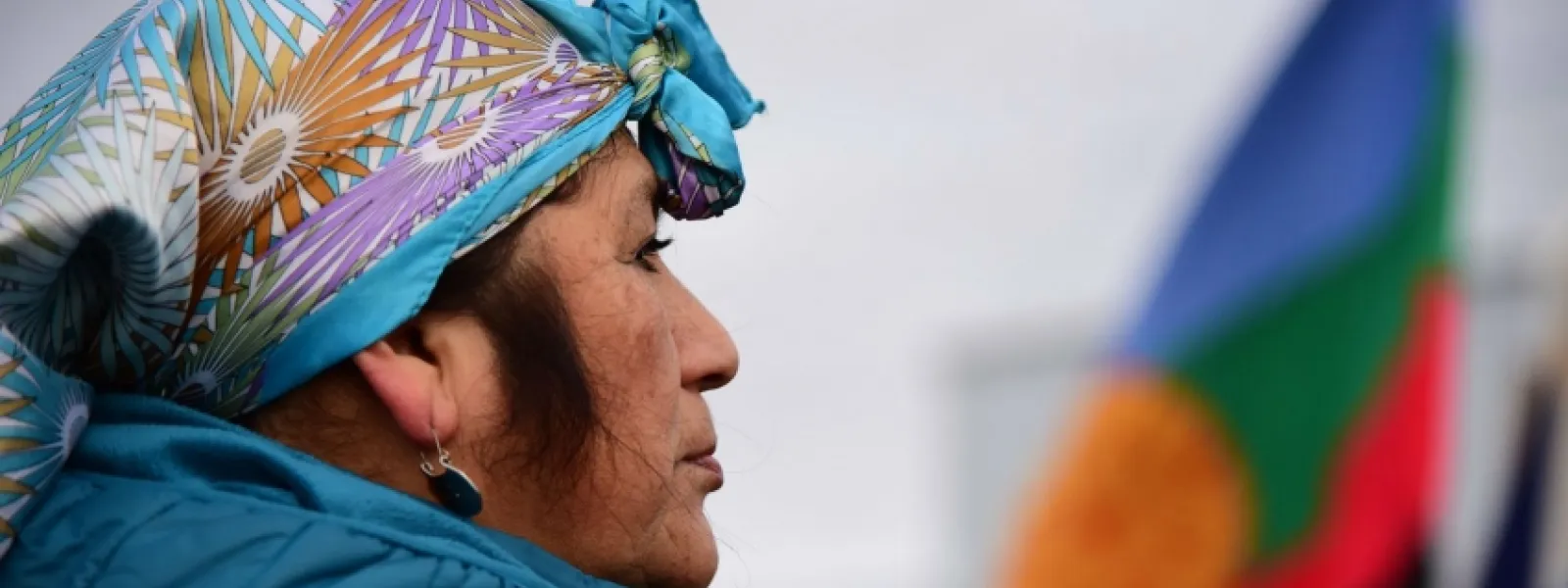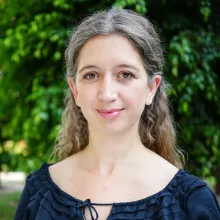
Defending communities from fracking’s advance in Argentina
Photo: Jorge Flies.In a country highly dependent on hydrocarbons, human rights and those of nature are often overlooked. That's why in Argentina, AIDA and our allies are supporting the efforts of communities and organizations to avoid the damages caused by fracking.
In Neuquén province in Argentine Patagonia, a large metal structure rises high above the apple trees. It’s one of many fracking wells that have been installed in this rich natural area. A single well like this one requires roughly 11 million liters of water for operation, the equivalent to 18 years of water consumption for an average family.
Despite being internationally recognized as an experimental, risky and contaminating process, fracking is spreading rapidly through Argentina, affecting the land and water of the Mapuche people and other local communities.
Much of the nation’s exploration is taking place at Vaca Muerta, the largest unconventional gas reserve in Latin America. Roughly 30 thousand square kilometers, the site covers four Argentine provinces: Neuquén, Rio Negro, La Pampa and Mendoza.
The expansion of fracking has brought with it problems like pollution and great harm to the livelihoods of local communities, including the Mapuche, who are forced to find new ways of living on their land in order to avoid migration to urban centers.
Oil companies generate unstable and short-term employment. And, due to the increase in the price of land, the residents of the area must earn more money to maintain their standard of living.
In a country that gets 90 percent of its energy from hydrocarbons, the government has failed to prioritize the rights of indigenous peoples, of children and of nature. Instead, it has favored the economic income of a highly unsustainable activity.
That’s why the efforts of communities and civil society organizations to resist the blind advance of fracking are fundamental.
“What motivates me is caring for our land and water; nature is not ours, we belong to it,” stated Santiago Cane, member of the Environment and Natural Resources Foundation (FARN), an organization that is using the courts to stop fracking.
FARN filed a writ of amparo to invalidate the authorizations granted for the exploitation of four fracking wells in Mendoza. The environmental authority granted the permits in July 2017, in a record time of six days, without requiring an Environmental Impact Assessment. The lawsuit, which AIDA is supporting from our experience in international environmental law, remains in process.
“In Mendoza, fracking is advancing at a rapid pace,” Santiago explained. “The national and provincial governments are not taking into account the potentially irreversible pollution of water sources that serve several cities.”
In fact, Mendoza is a province that has suffered from water scarcity for years, a problem aggravated by climate change.
Those who promote fracking in Mendoza also overlook the fact that, by contaminating both surface and ground water supplies, the toxic chemicals used in fracking will likely reach the Llancanelo lagoon, a wetland of international importance located in the foothills of the Andes Mountains. The lagoon is a mandatory passage and rest area for more than 130 species of resident and migratory birds.
Additionally, the region is home to the Mapuche people. According to international law, indigenous peoples like the Mapuche must give their free, prior and informed consent to any activity that affects their territory. That right is not being respected in this case.
“I am motivated by the idea of a different economy that does not deprecate nature and that does not generate the accumulation of wealth within small groups of society,” Santiago adds.
FARN, together with AIDA, is part of the Latin American Alliance on Fracking, a coalition of organizations that work to slow fracking’s advance in the region.
Together we will continue our work to avoid fracking’s damages to our land and water. We are convinced that the power to stop fracking lies with the people.
Claudia Velarde Ponce de León

Claudia Velarde Ponce de León is a Bolivian attorney and Director of AIDA's Territories Program. She works with AIDA from Cochabamba, Bolivia. Claudia has a Masters in Environmental Management from the Universidad de León in Spain, with a speciality in the management and conservation of natural areas. She has worked on public policy development, protected areas management, watershed management, climate change, food sovereignty, agroecology and environmental health.
